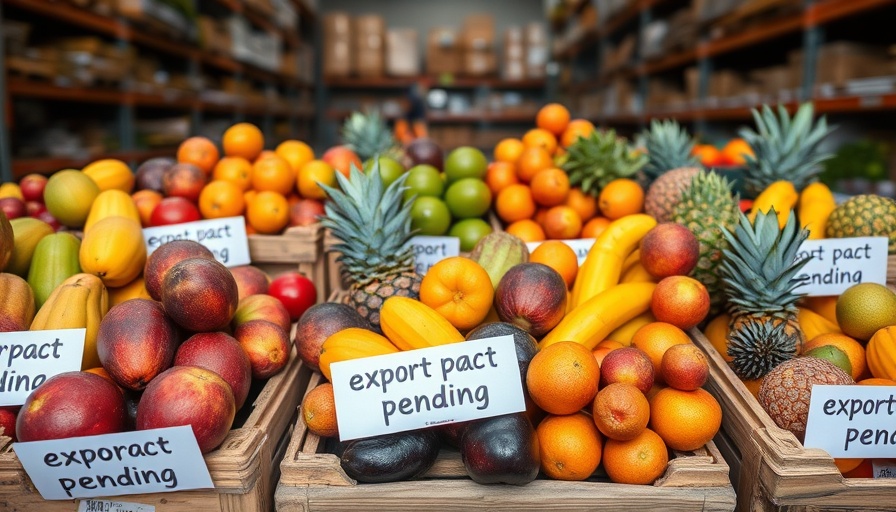
Optimism Amidst Challenges: German Companies in Southern Africa
In the wake of South Africa’s recent national elections, a new survey reveals a cautiously optimistic outlook for German businesses operating in South Africa and the broader Southern African region. Conducted by KPMG Germany in collaboration with AHK Southern Africa, the ‘German-Southern African Business Outlook 2025’ offers critical insights into the professional climate and investment attitudes of German firms.
Survey Insights: Key Findings from the KPMG-AHK Survey
From November 11 to December 31, 2024, KPMG and AHK engaged 98 companies to explore the pressing challenges and opportunities facing businesses in the region. The results indicate a significant degree of optimism: 64% of participants in South Africa expect an increase in sales within the year, while 58% in the wider Southern Africa region echo this sentiment.
Profit expectations are also uplifting, with 48% of South African respondents anticipating higher profits—this reflects a gradual turnaround as businesses adapt to economic challenges. Furthermore, 44% of firms plan to invest in South Africa over the next three years, with at least €3 million earmarked for projects by 10% of these companies. In contrast, investment interest wanes in other Southern African countries, where only 20% express investment plans.
The Impact of Political Stability on Business Growth
The survey's responses suggest a strong correlation between enhanced political stability and business growth. Almost all respondents (77%) believe the recent election outcomes will favorably impact the economic environment. However, 65% anticipate that improvements will be moderate, illustrating a tempered perspective. Business leaders are hopeful that the newly formed Government of National Unity will spur necessary reforms for sustainable growth as they work to address longstanding issues in infrastructure and crime.
Corruption and Infrastructure: A Business Imperative
As noted by Andreas Glunz, KPMG Germany’s managing partner for international business, one of the most pressing tasks for the new government is to systematically combat corruption and crime. This sentiment resonates with 46% of surveyed companies identifying this as a paramount focus for improvement, clarifying their critical concern for the local business environment. Investment in infrastructure modernization—favored by 39% of firms—also appears essential to facilitate economic expansion.
Challenges Driving Innovation: The Role of Technology
In a world increasingly driven by technological advancements, German businesses are exploring digital solutions as they navigate local challenges. Areas such as cloud computing, data analytics, and cybersecurity are gaining traction, reflecting a need to innovate amidst infrastructural gaps.
For many firms, adapting technologies—like IOT devices for supply chain improvements or AI tools for decision-making—serves as both a response to immediate challenges and a catalyst for long-term growth.
Future Predictions: What Lies Ahead for German Enterprises
As businesses look beyond immediate recovery, the forecast for growth hinges on the government’s ability to stabilize political and economic conditions. The formation of a united government has reinvigorated hopes. Many German companies see South Africa as a gateway to expanding markets across sub-Saharan Africa, capitalizing on a youthful demographic and untapped resources.
While optimism prevails, industry players must remain cautiously vigilant, embracing innovative strategies and digital transformation frameworks that encompass automation, digital skills, and responsible tech investments. A holistic focus on cultural and social adaptation will serve as a foundation for creating robust business ecosystems ready to adapt dynamically.
Conclusion: Embracing Opportunities Amidst Uncertainty
In summary, the KPMG-AHK survey reflects a complex yet promising landscape for German companies in Southern Africa. The confluence of political change and economic opportunity beckons resilience and innovation from business leaders. Understanding and integrating advanced technologies, fostering public-private partnerships, and tackling systemic challenges will determine the region's future success. As executives and professionals hone their strategies, continuing to monitor evolving conditions will be crucial for sustaining growth and tapping into Southern Africa's full potential.
Stay informed and be part of the change—understand how you can engage with the technological advancements that may redefine business landscapes. Join the conversation today by exploring more insights on innovations in the region.
 Add Row
Add Row  Add
Add 




Write A Comment